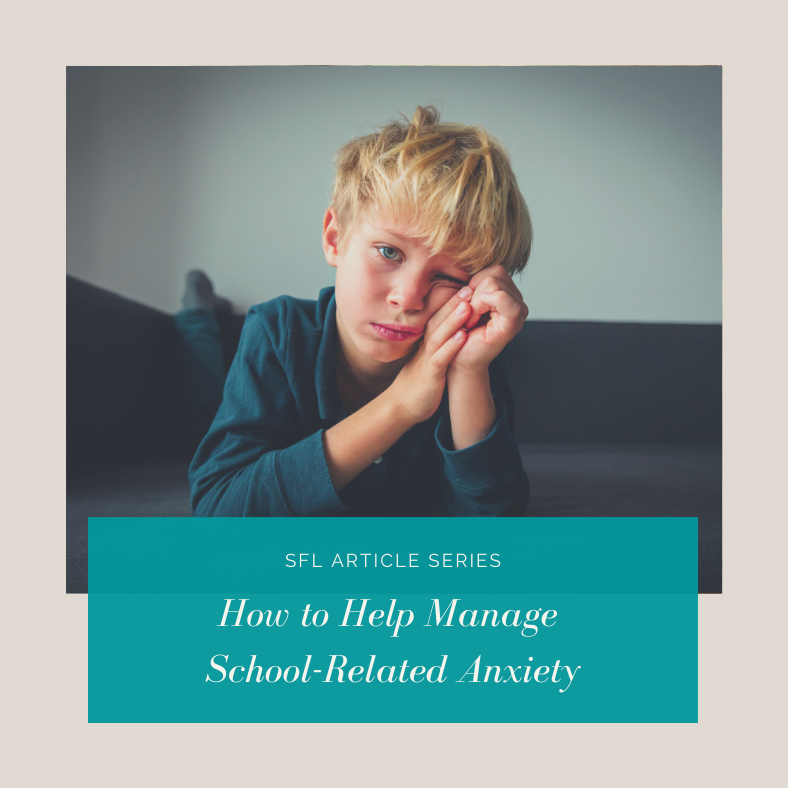No products in the cart.

Written by Danielle Klan, M.A. Special Education
In the past couple of years, the National Association of School Psychology has seen an increase in school-related anxiety that may have been ignited by the global pandemic and the uncertainties school systems had to navigate. If your child has developed or exhibits any school-related anxiety, you may be able to help and support your child with a few tips below.
Be in the know with your child’s school and teachers– The best people to receive feedback and advice on any anxiety behaviors your child may be experiencing would be your child’s classroom teacher, building principal, related service members or anyone who works closely with your child throughout their school day. Anxiety symptoms range very widely so it is important to keep a close working relationship with the professionals involved in your child’s care.
Practice predictability– Having an predictable routine and schedule throughout your child’s school week may help alleviate some of your child’s school-related anxiety. If your child knows what to expect before, during and after school it leaves little room for the ‘unknowns’ that may drive some anxiety induced behaviors.
Talk with your child– Communication both receptive and expressive is critical in helping your child navigate any anxiety they may feel about school. Whether it is academic or social/emotional anxiety that drives your child’s behavior, it is important to listen to your child and talk often especially if you are noticing behaviors atypical for your child. Problem-solving and talking through what may drive their anxiety is a crucial component to dealing with situations that may be difficult for your child. By offering support and working through scenarios with your child may help them alleviate some of their stressors and feel supported.
Know when to seek more help– If you or someone working with your child notices that your child is unable to maintain focus, complete tasks or engage in day to day activities due to school related anxiety you may want to talk with your child’s pediatrician or school psychologist. These resources can offer more support specific to your child’s needs in order to assure they are successful with school.
Other Resources:
Q&A: Virtual Sessions Amidst COVID-19 (article)
What You Should Know About Orton-Gillingham (Infographic)







No comment yet, add your voice below!